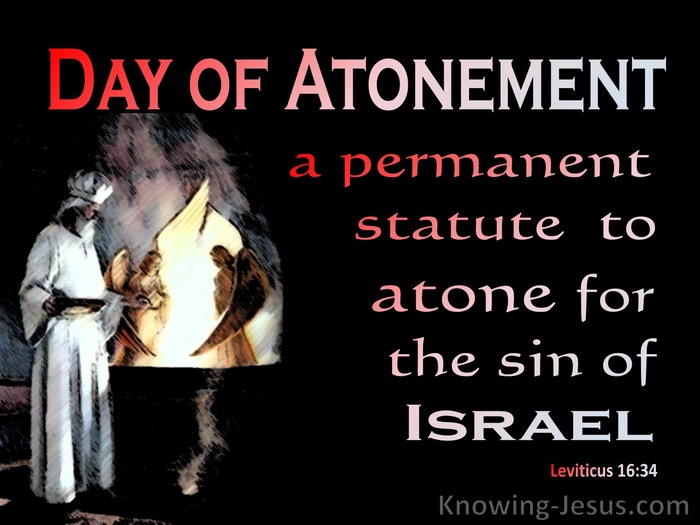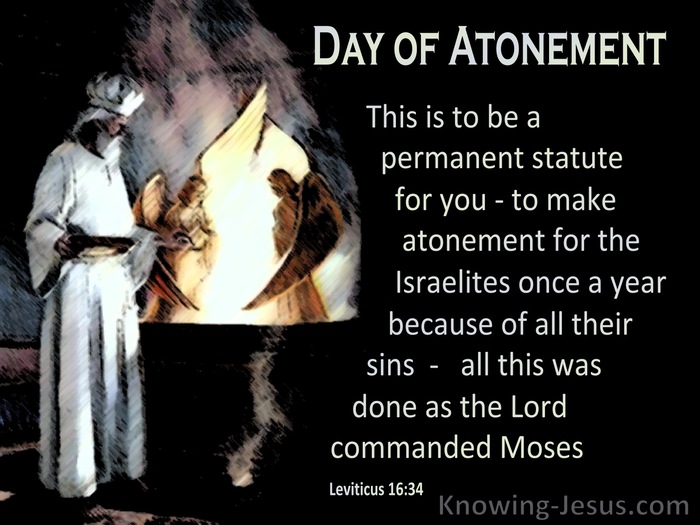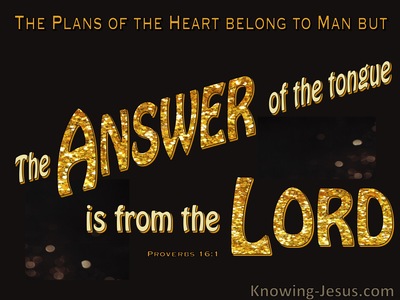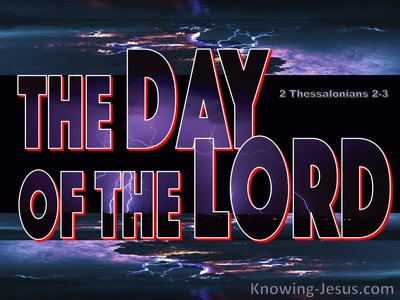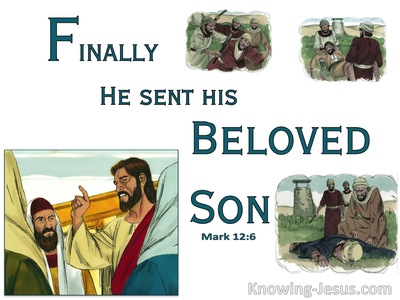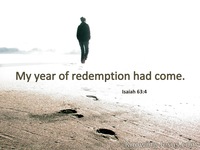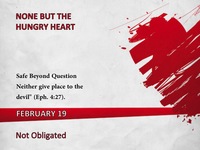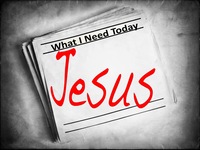◄ What Does Leviticus 16:34 Mean? ►
This is to be a permanent statute for you, to make atonement for the Israelites once a year because of all their sins." And all this was done as the Lord commanded Moses.
Leviticus 16:34(HCSB)
Verse of the Day
The Pharisees poured over the Old Testament Scriptures because they thought that they would find the key to eternal life within their sacred pages, and yet they failed to recognise the very Person towards which all Scripture points, and about Whom all Scripture speaks.
When the Lord Jesus met the two disciples on the road to Emmaus, they also demonstrated a serious lack of scriptural knowledge, but the Lord Jesus opened up their understanding of His Word. Starting with Moses and all the prophets, He explained to them all the passages in Scripture about Himself.
Frequently, the Holy Spirit used 'types' in the Bible to point people to Christ. Each 'type' would present one particular aspect of Christ's Person or ministry. God often used 'people' and 'things' as a 'type' of Christ in Scripture (to represent some character trait of the Lord Jesus or an important aspect of His ministry).
In Leviticus, we read of the Aaronic priesthood, the animals that were sacrificed, and the rituals which were performed, all of which become a type of Christ's priesthood, performance, sacrifice, and innocence. We also read of the Tabernacle and its articles of furniture, the various Feasts of the Lord, sacrificial offerings, Sabbath day regulations, and other ceremonial dos and don'ts, all of which point to certain aspects or actions of Christ's character and life.
In Leviticus 16, we read of the institution of the Day of Atonement, which God commanded as an annual ceremony. It had to be carried out on the 10th day of the 7th month of Tishri. Every aspect of this holy day highlighted some peculiar feature of Christ's Person and work and was to be a day for Israel to mourn for past sins. This special occasion was expected to provoke true heart-repentance and a genuine desire to change from their sinful ways.
Participation in the annual Day of Atonement was not a choice, but a direct command from the Lord: "This is to be a permanent statute for you, to make atonement for the Israelites once a year because of all their sins," was God's direct order to Moses. And so we read: "This was done exactly as the Lord commanded Moses."
The Day of Atonement was a time when the people were to deny their own needs. It was to be a time a time of fasting, repentance, and prayer. It was to be an additional Sabbath to the Lord, and no work was to be carried out on that day. Similarly, the officiating priests and participating people were not to deviate from the specific directive from God on the Day of Atonement (nor indeed on any other feast day or sacrificial institution).
Like all biblical 'types', the reason there could be NO deviation from God's direct command when engaging in the Day of Atonement is brilliantly addressed in the book of Hebrews. There we discover this particular ceremony required Israel to mourn over their sin, and pointed directly to Christ's offering of Himself on the Cross as the sacrificial Lamb, the sole sacrifice for the sin of the world.
Atonement means 'to cover' and the animals that were offered annually on the Day of Atonement covered the sin of the people for one more year, but their blood could not remove the eternal stain of sin from the soul. The blood of innocent animals was a covering for a time, but the price for sin could never be fully paid by the blood of bulls or goats.
The sacrificial blood of Christ has infinite value. His atonement is not a limited covering but is an eternal safeguard, for through the eternal Spirit, the penalty and power of sin is not simply covered, but removed forever. The Lord Jesus Christ offered Himself to God as the unblemished, sacrificial Lamb. His sacrifice cleansed our consciences forever from all sin and the consequences of sin.
The writer to the Hebrews demonstrated that the earthly Tabernacle, the Feasts of the Lord, the Aaronic Priesthood, and many other Old Testament things were simply earthly copies of a heavenly reality. Every earthly 'type' pointed to Christ the heavenly Man, whose shed blood offered a better sacrifice than the earthly equivalent.
My Prayer
Heavenly Father, how I praise and thank You for the cleansing blood of Jesus Christ. Thank You that He was the sacrifice for my sin and acts on my account as my heavenly High Priest Whose sinless blood has been sprinkled on the heavenly altar as the full and final payment for all my sin and the sin of the world. Thank You for all the word pictures and Old Testament typology that helps me to understand so much of what Christ has done for me. It is so wonderful to know that by grace through faith in Him, my sin has been forgiven, once and for all. The power of sin in my life was defeated at the Cross, and the presence of my sinful nature will be finally gone forever when I see Him face to face. Thank You, in Jesus' name, AMEN.
Choose a Verse from Leviticus 16
Leviticus 16:34 Further Study
- Leviticus 16:34 in the Parallel Bible
- Leviticus 16:34 in the Thematic Bible
- Leviticus 16:34 Cross References
- Leviticus 16:34 Treasury of Scripture Knowing
- Leviticus 16:34 Sermons
- Leviticus 16:34 Prayers
- Leviticus 16:34 Images
- Choose Chapter
Never miss a post
